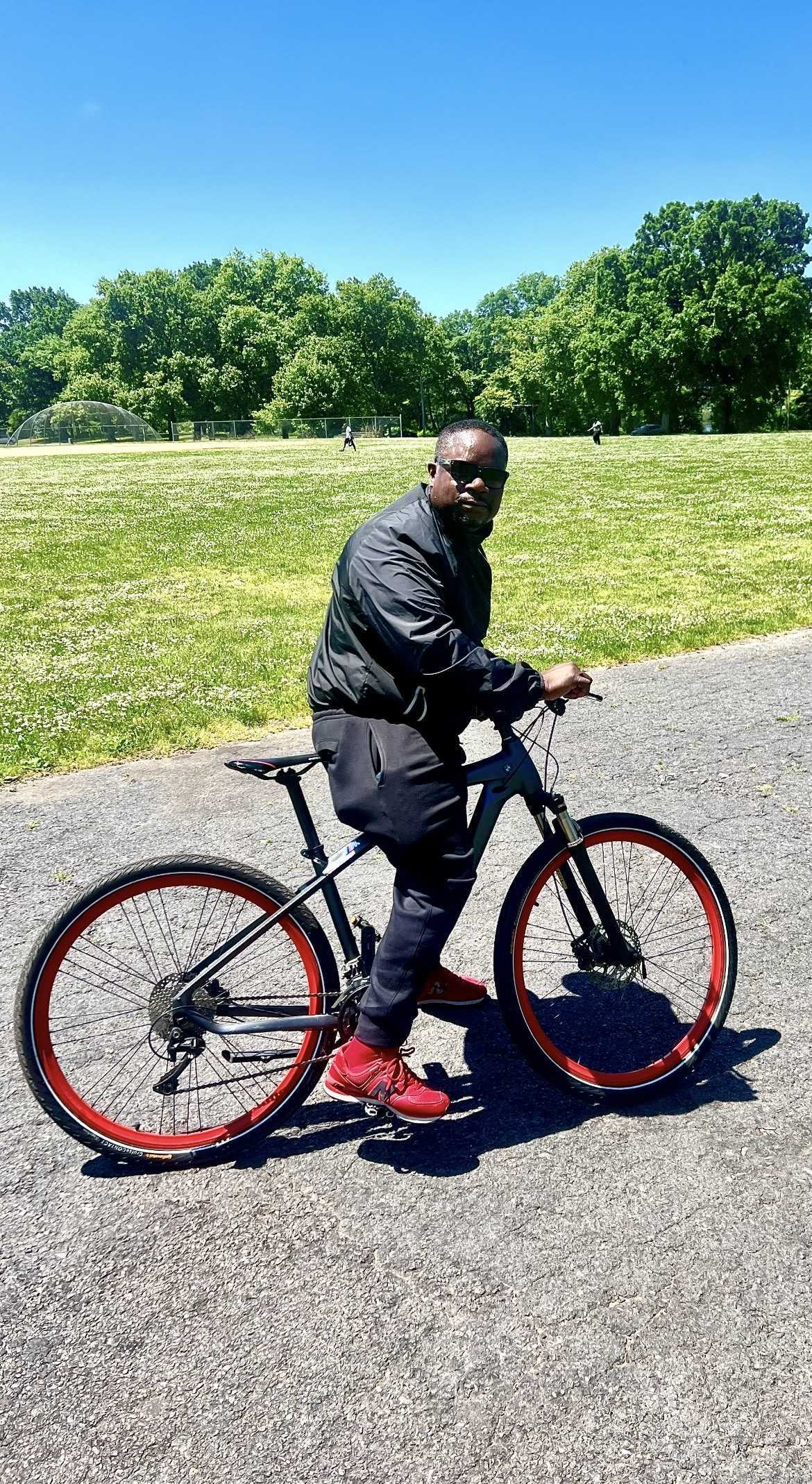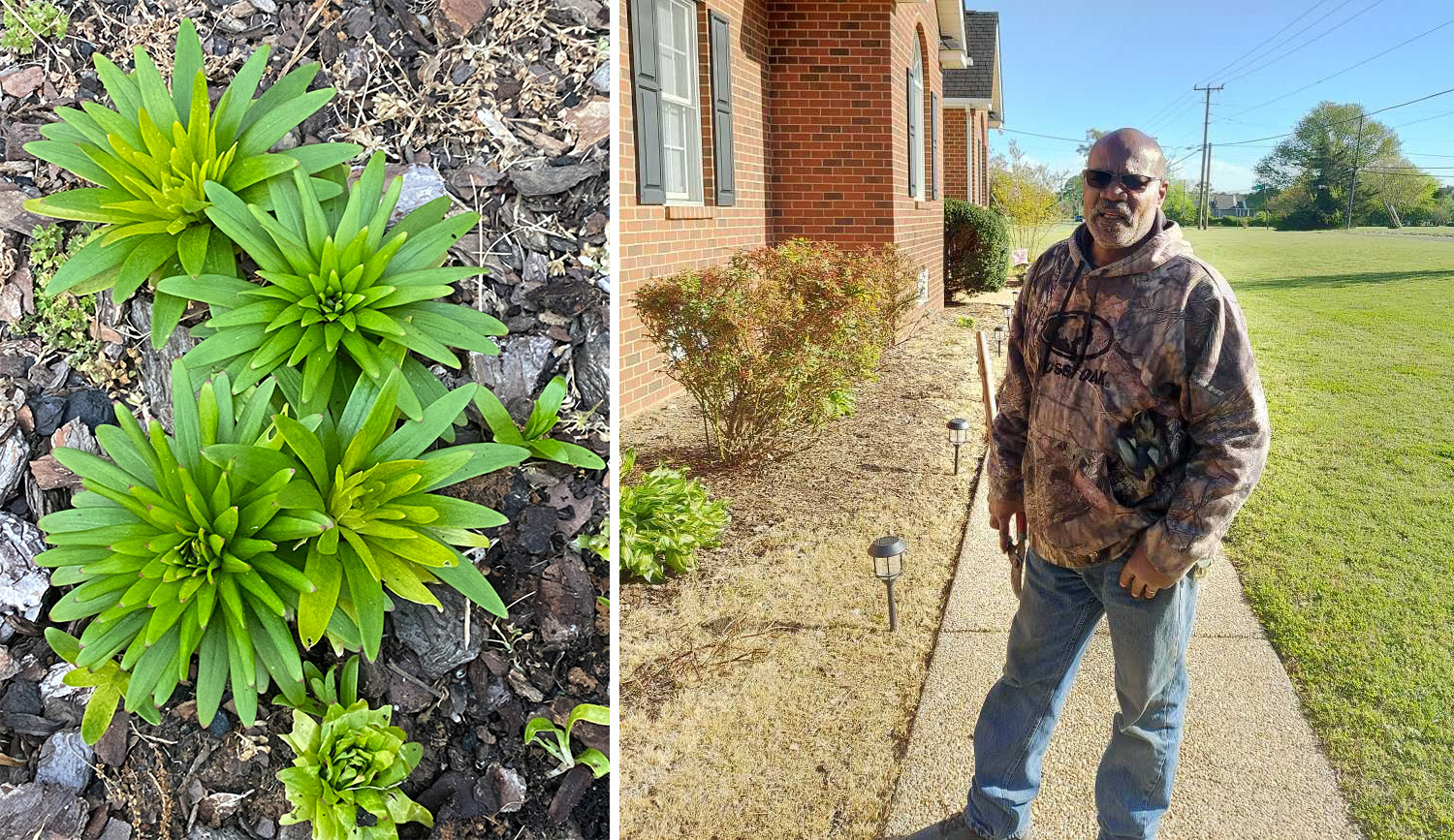Having spent 18 years behind bars for a crime I didn’t commit, I know firsthand the toll a wrongful conviction can take on one’s mental well-being.
An exoneration is a joyful experience for someone who has been wrongfully convicted. Yet for all the joy and celebration, exonerees may confront deep and emotional mental health struggles stemming from incarceration.
Having spent 18 years behind bars for a crime I didn’t commit, I know firsthand the toll a wrongful conviction can take on one’s mental well-being. Wrongful convictions shatter lives, leaving scars that aren’t always visible. In my role as Innocence Project’s first-ever re-entry coach, I am dedicated to helping exonerees find their paths to healing and resilience as I navigate my own.
Here are some coping mechanisms that have helped me and others navigate the complexities of incarceration and life after exoneration that may be helpful to others.

Rodney Roberts out for a bike ride. (Image: Courtesy of Rodney Roberts)
1. Get active.
It’s common knowledge that regular exercise, like daily walks or workouts, is good for our physical health, but regular body movement is essential for reducing stress that could lead to depression. These activities provide a space for release, allowing us to channel our energy positively.
I engage in physical activities like bike-riding and Tai Chi to not only promote my physical health but also nurture my mental well-being. Similarly, Innocence Project client Norberto Peets, who was wrongly incarcerated for 26 years, has shared how basketball served as an outlet to channel stressful energy.
“In Sing Sing Prison, I played basketball all day, and it helped me stay in good shape, but, in that moment when I was playing basketball, it took a lot of stress away from me,” he explained after his release in 2023. “That was the only time I felt like I was a little free and not so in my mind about all the stuff I was dealing with.”

Marvin Anderson on his front lawn at his home in Virginia. (Image: Courtesy of Marvin Anderson)
2. Connect with nature.
Gardening offers a sense of purpose and tranquility. Tending to plants, nurturing their growth, and witnessing the beauty of the natural world can be profoundly healing, providing a grounding presence amidst the chaos of post-exoneration life.
Marvin Anderson, an exoneree and a member of the Innocence Project’s board of directors, began cultivating plants at an early age, helping out on his family’s farm. He rediscovered this passion after he was released in 1997 on parole — he was later exonerated in 2002.
“A lot of people think gardening is really hard work and very complicated, but I find it very relaxing, and it’s easier than you think,” Mr. Anderson said in 2021.
To learn more about stress and stress-related issues go to stress.org.
